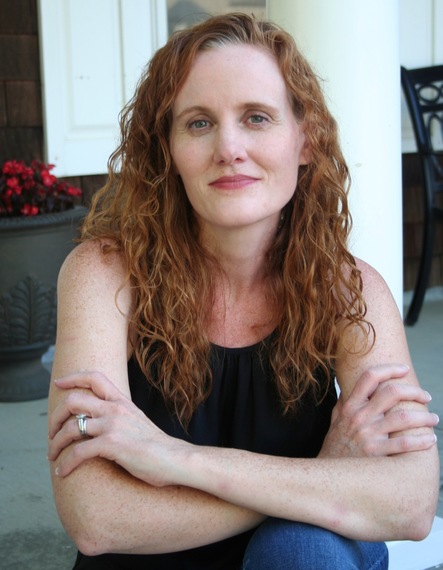Photo: Michele O'Donnell
Liz Kay holds an MFA from the University of Nebraska, where she received an Academy of American Poets Prize. Her poetry has appeared in various journals and she has been nominated for the Pushcart Prize and for inclusion in the Best New Poets Anthology. She's a founding editor of Spark Wheel Press.
Monsters: A Love Story, her first novel, features Stacey Lane, a published poet and mother of two young boys, who is left in a state of bereaved confusion after the sudden death of her husband. No longer able to write, and living in her dead husband's hometown, she feels lost in her life.
Everything in her life changes dramatically when she receives an email from a movie producer interested in purchasing the film rights to her latest work, Monsters in the Afterlife. She finds herself in Hollywood working closely on the screenplay with bad-boy actor Tommy DeMarco. These two damaged people form an unlikely pair and their tumultuous relationship begins.
You're a published poet. What made you decide to write a novel?
I was more than half way through writing it and still denied to myself that I was actually writing a novel. Over time, my work had become increasingly narrative. I'd written a sequence of poems based on the Hansel and Gretel story, but I wrote them from the perspective of the witch. Various artists were very interested in it--painters, novelists, poets, playwrights--and I became excited by the idea of a writer's work being interpreted by others, which is central to the narrative of the book. The characters of Stacey and Tommy developed, and the novel emerged. It was really liberating for me because I'd never before written on so large a scale.
Why the title Monsters: A Love Story?
In a way, I think Stacey and Tommy are monsters themselves. Specifically, Stacey is busy policing herself and her behavior. She sometimes seems cold and unemotional; and she could be criticized for how she handles her young children. Tommy has no boundaries at all, and he's not used to being held accountable for his behavior. He constantly crosses the line.
You've talked about Monsters being a culmination of preoccupations about gender expectations, sexual politics, and the power of desire. Will you talk about that?
For me, it probably traces back to an episode of Downton Abbey where a diplomat lets himself into Lady Mary's room and coerces her into sex. It's such an interesting theme because the way they depicted it made it seem seductive. Actually, it was an assault. I think it fostered our ideas about sexuality that women are always culpable for their behavior. I wanted to write something that played into that cultural obsession with a so-called "traditional" romance, but one that was problematic.
Monsters portrays two very different men: Phillip, a physician; and Tommy, an actor. Tell us about this dichotomy.
I love Phillip. [Laughter] He represents a different kind of masculinity. He's quite respectable and respectful. He's careful in his approach to Stacey; doesn't push her sexually and Stacey becomes the aggressor in their relationship. He's careful with her children; yet, there's no spark for Phillip. Stacey doesn't feel passionate about him and the children don't seem to like him that much.
Why, in our culture, are we so drawn to the larger-than-life but problematic 'Tommys'?
Poetry doesn't contain dialogue; yet, the dialogue in Monsters is razor sharp. Talk about writing dialogue after years of writing poetry.
Writing dialogue was the most fun for me. In poetry, I don't use dialogue, ever. The language of poetry is so far removed from the way we actually speak. Moving into a world where I could create snippets of conversation like the language used in daily life, was my way of making art out of conversational language. The dialogue just seemed to flow naturally. I write like a poet does; I write line-by-line and then make small tweaks. I pay attention to syllable counts and rhythms. I'm sure that factored into the way the dialogue ended up.
You once mentioned having fallen deliriously in love with Tommy and Stacey, the two main characters in Monsters. Will you talk about the importance of characters?
My work has always been driven by character. I'm most interested in characters who are organic, imperfect, and deeply flawed. I always want to find that human element in them--the things that make them vulnerable and lovable. While I think Tommy and Stacey are monsters in their own ways--Tommy much more so--I've always loved monsters. Falling in love with both Tommy and Stacey was what made writing the book possible for me.
What's coming next from Liz Kay?
I have a couple of ideas. I'm sure whatever I end up doing will be subversive. [Laughter].
Congratulations on penning Monsters: A Love Story, a blistering tale about a problematic relationship between two deeply flawed and charismatic characters.
Mark Rubinstein's latest novel, The Lovers' Tango, won the gold for Popular Fiction in the 2016 Benjamin Franklin Awards.

